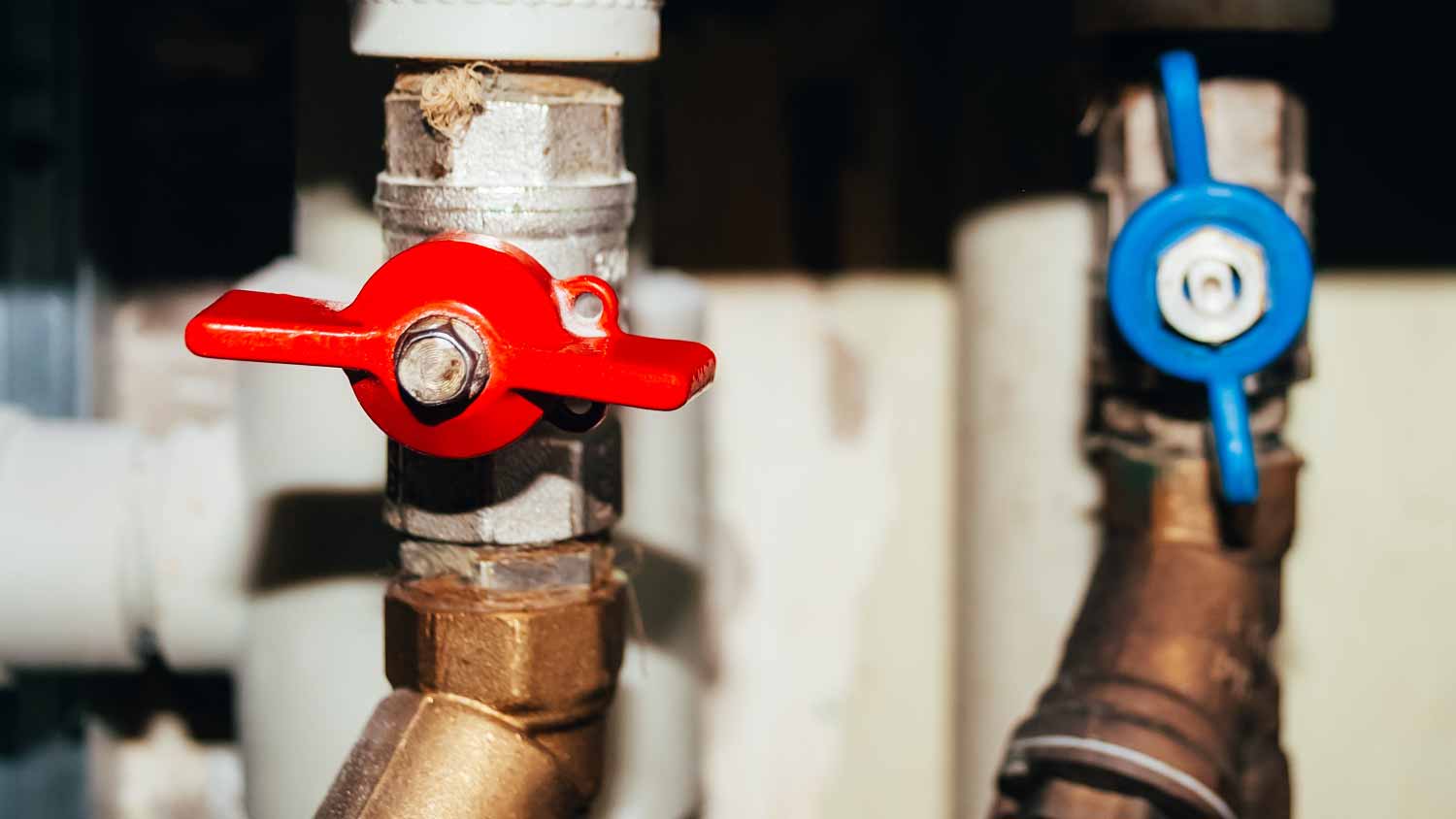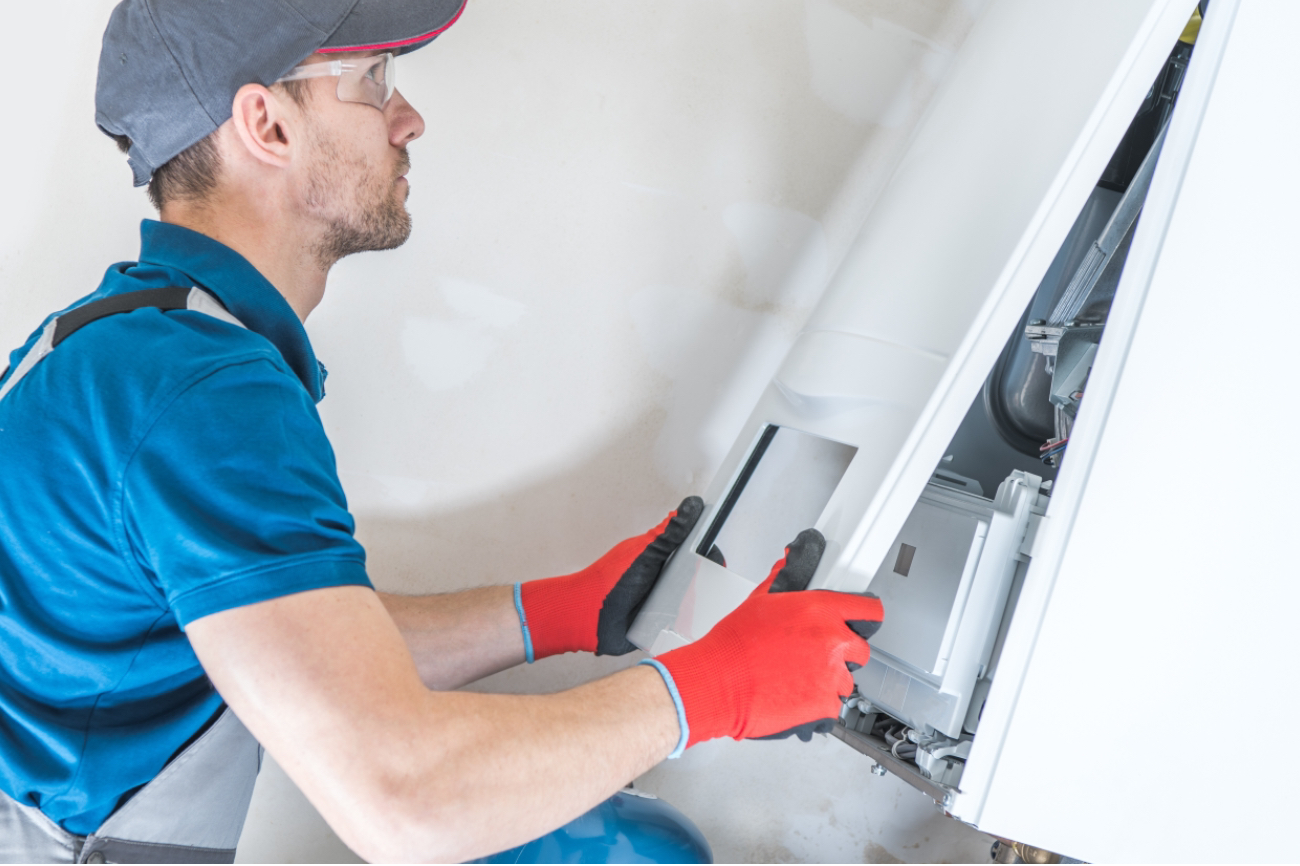
Explore how much an AC compressor costs to install based on cost factors like it’s type, brand, size, and local labor rates.
Stay out of hot water after a shut-off


Air conditioning and plumbing systems are not connected to one another, so a problem with one does not mean there will be a problem with the other.
Water heaters are the most common shared component between plumbing and HVAC systems and the most likely to be affected if the water gets shut off.
Shut your water off before extensive travel, and turn the water heater off, too, if the tank looks empty.
Getting the water shut off is no picnic. Plumbing emergencies or utility problems really know how to ruin a good day. But it’s important to keep a level head after a water shut-off and be careful turning it back on so that none of that nasty bacteria in the pipes affects your drinking water. But does shutting off water in your home affect your air conditioning, too?
Fortunately, residential HVAC systems are separate from home plumbing systems. A problem with one doesn't mean it'll cross beams and affect the other. Central air systems aren't connected to your home's drain pipes at all. Whatever happens with your plumbing is largely separate from the AC, barring a flood or other extreme conditions creating electrical or mechanical problems. Plumbing issues like clogs, leaky pipes, or a faucet that won't shut off will not affect your air conditioning at all.
Though they aren’t directly connected, HVAC and plumbing systems share two elements that can cause problems if the water flow is disrupted: condensation lines and water heaters.

Have you ever walked down a city block with apartment buildings full of window ACs and gotten annoyed at those droplets that hit your head? That's condensation, which will drip off of air conditioners. The condensation line is a bigger and more complex version of the drips that come from these window AC units.
The condensation line directs the flow of condensation from the HVAC system to the home's exterior. With most units, the condensation drips into a pan underneath your interior unit and flows into a pipe in the exterior wall so that it drips outside. However, in some setups, condensation flows into the sewer line.
According to the International Code Council, which sets the international mechanical codes for residential construction, it is illegal as of 2021 to connect condensation lines to plumbing drains. This type of setup is only seen in older homes, and even then, it's pretty rare. Most homeowners don’t have to lose sleep over this since there’s a high likelihood your HVAC system’s condensation line drains outside.
But if you turn the water off and then back on, there’s a small chance that the accumulated condensation will go somewhere expensively inconvenient. You’ll want to speak to a local AC installer about your options for redirecting this condensation or how you can prepare for situations where the water gets shut off. This is especially true if you have an older home that’s no longer up to code.
Water heaters are connected to the heating element of your HVAC system. While separate from the air conditioning aspect, they are still part of the same system in most residential HVAC setups. When the water gets turned off because of plumbing emergencies or you have extensive travel planned, you don't need to shut off the water heater simultaneously. So long as your heat is functional and the temperature isn't set very high, you shouldn't have any problems.
However, if the water gets turned off during colder weather and you have the heat cranked up, this can put pressure on the water heater's storage tank. Consistently high temperatures can pressurize the tank and cause it to leak. Age, loose fixtures, and unrelated damage to the tank can also cause the water heater to leak and create a messy and expensive problem.
We highly recommend inspecting your water heater annually for signs of degradation. If you spot any potential warning signs, consider contacting a local plumber.
If you lose pressure on the cold water side of the water heater, you should definitely shut off the water heater. This is an incredibly rare occurrence, but one where you should turn it off to prevent further damage.
The water heater also saves water in its tank so that you can always take that spa-worthy long, hot shower when you need to. But if this tank looks empty and you're about to take that three-week dream vacation, this is also the time to shut the water heater off after voluntarily turning your water off. This will prevent pressurized ruptures until it's time for normal water flow to resume.
Mayflower was an excellent choice for the complete renovation of my condominium. They knew exactly how to deal with the complexities of the condo building and management to make the project very smooth, easy and done right. From start to finish, everyone was incredibly helpful and their...
He requested I review his service, so I am following through. This week was the second service. I told him that our particular needs were that the trash cans in the living room, kitchen, and my bedroom be emptied. I explained what should go in recycling and which should go in garbage bin...
Alex and his crew are great! I contracted them to move my dad and they went above and beyond!
Excellent sales staff and installer. Easy to work with. I appreciated that my current system was able to be activated and used.
I needed a kitchen and bathroom remodeling and these guys were the best people I could choose. They took my vision and brought it to life! Amazing customer service.
From average costs to expert advice, get all the answers you need to get your job done.

Explore how much an AC compressor costs to install based on cost factors like it’s type, brand, size, and local labor rates.

Whole-house humidifier costs vary based on the type and size of the unit, along with other factors. The price might be worth it for people living in dry regions.

Factors such as labor and parts impact the final price of repairing a window AC unit. Learn all of the costs associated with window air conditioner repair.

Discover heat exchanger replacement costs to learn about price factors, labor, and ways to save before hiring a pro or starting your project.

With so many types of furnaces out there, how do you know which one is best for you? Explore our guide to the five main types and get your home warmed up.

Keep your home perfectly cool during the warm months. Learn about nine types of air conditioners and how to choose the right one for your home.